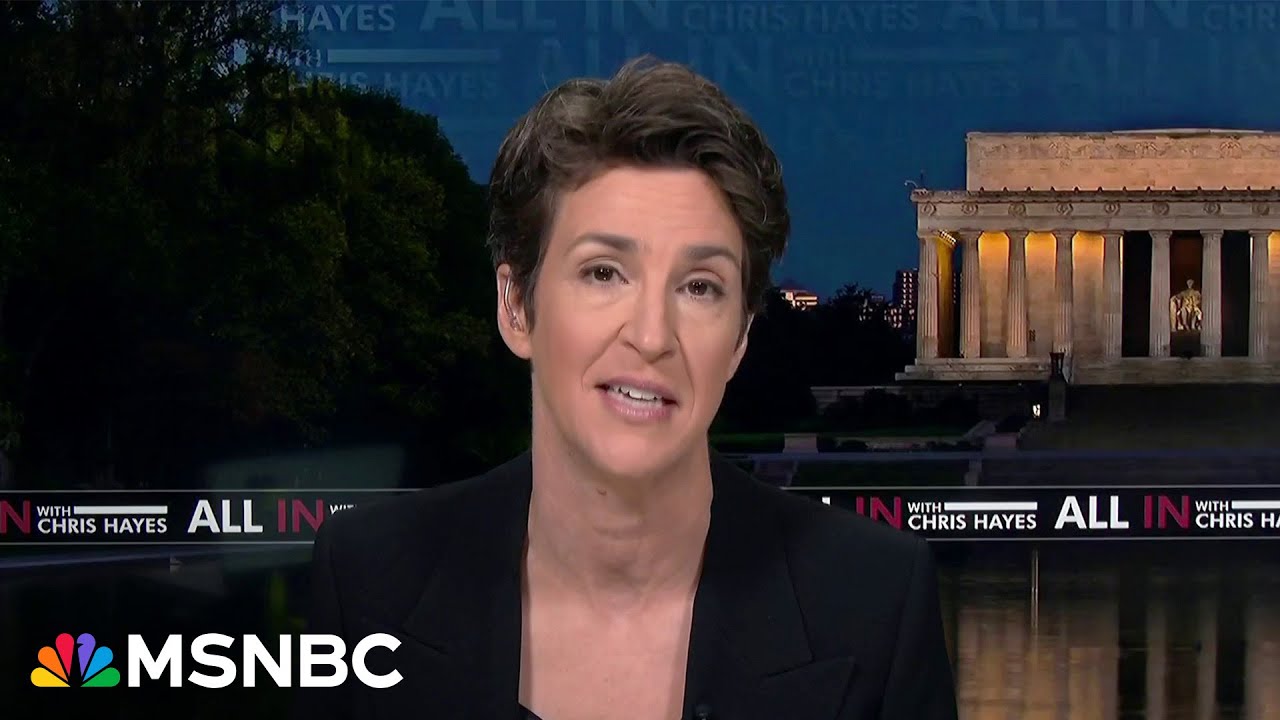Interesting subject. I realize why they don’t but I’d love for people to post transcripts of their videos. It’s very rare I watch a video of people talking when I come across them on Lemmy/mastodon/blue sky. It takes longer to watch than it would for me to read it, and often I’m not in a place where it would be practical/appropriate to listen to audio.
I would love this as well. How often do I stumble upon a news “article” that is just a headline and a video, with virtually no written content. I want to be able to read the news, at my own pace and without headphones!
@LesserAbe@lemmy.world @r0m2@lemmy.world Gotchu
The segment presents a detailed discussion between the host and Rachel Maddow, focusing on the legal consequences faced by individuals involved in attempting to undermine the democratic process, drawing parallels with historical instances of attempts to subvert democracy. The dialogue touches upon several key points:
- Legal Actions Against Trump Lawyers: The discussion opens with reference to the legal predicaments of various lawyers associated with Donald Trump, including John Eastman, Rudy Giuliani, Sidney Powell, and Jenna Ellis. The emphasis is on the disbarment and criminal consequences they are facing or may face due to their actions in challenging the election results, suggesting a breach of ethical duties as lawyers.
- Historical Parallels: Maddow draws parallels between current events and historical attempts to subvert democracy, highlighting the importance of institutions like the Bar Association in maintaining democratic integrity. The discussion mentions the role of the Catholic Church in the 1930s in countering fascist movements and emphasizes how institutions have historically been crucial in upholding democracy.
- The Role of the Bar Association: The conversation highlights the Bar Association’s efforts to ensure that lawyers uphold ethical standards, particularly in light of attempts to use legal claims to cloak actions aimed at undermining democracy. This reflects a broader institutional commitment to democracy and the rule of law.
- The Importance of Adjudicative Processes: The dialogue stresses the significance of legal and adjudicative processes in establishing facts and reality, particularly in the context of defamation cases related to the 2020 election and its aftermath. These processes are viewed as essential for publicly testing evidence and facts, thereby establishing a consensus reality.
- The Power of the Criminal Justice System: Maddow and the host discuss how the criminal justice system serves as a venue where evidence is made public, tested, and where falsehoods can be exposed in a fair and adversarial setting. This is contrasted with the spread of misinformation and lies, which the legal process can help to counter by establishing incontrovertible facts.
- Entertainment and Education: Maddow touches on the educational and sometimes entertaining aspects of legal trials, particularly in revealing absurd claims (e.g., smart thermostats swaying elections). This highlights the broader educational value of the legal process in demystifying and debunking baseless claims.
Thanks! This really saved me a click!
Not all heroes wear capes! Thanks person!




